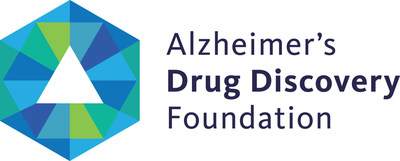New Alzheimer's Clinical Guidelines Move Towards Replacing More Invasive Tools with Blood Tests; Pressing Need for Further Guidance Remains
Alzheimer's Drug Discovery Foundation calls for guidelines for FDA-approved blood tests to continue momentum toward precision medicine
NEW YORK, July 30, 2025 /PRNewswire/ -- Expanding the use of Alzheimer's blood tests is crucial to usher in a new era of precision medicine and bring Alzheimer's disease into mainstream care. The new clinical practice guidelines for blood biomarkers announced today by the Alzheimer's Association represent a first step in this effort, but further direction is needed to address newly FDA-approved tests as the diagnostic landscape continues to evolve.
"Replacing more invasive PET scans and CSF tests, when appropriate, with blood tests will be a major step toward the future we envision, where we can detect and diagnose Alzheimer's sooner, allowing for earlier intervention and even prevention," said Dr. Howard Fillit, Co-Founder and Chief Science Officer of the ADDF. "These guidelines signal progress, but with the science moving quickly, it's essential that clinical recommendations keep pace – especially with Fujirebio's blood test approved by the FDA and more to follow."
The new guidelines are limited to specialty care, apply only to patients with cognitive impairment, and exclude several blood tests, including Fujirebio's. Still, they reflect critical momentum, recommending blood biomarkers with ≥90% sensitivity and specificity to replace more invasive and costly confirmatory tests like PET imaging or cerebrospinal fluid (CSF) testing during Alzheimer's diagnosis. As of now, only C2N's PrecivityAD2 test meets these requirements.
Tests with ≥90% sensitivity and ≥75% specificity are recommended to be used for triage, with negative results ruling out Alzheimer's, while positive results should be confirmed with PET or CSF.
While amyloid blood tests are a critical first step, the ADDF is focused on advancing next-generation biomarkers through its Diagnostics Accelerator (DxA) – a $100 million global initiative supported by the late Leonard A. Lauder, Bill Gates, Jeff Bezos, and other leading philanthropists – that reflect the broader biology of aging and align with today's robust drug pipeline where over 70% of drugs target non-amyloid pathways.
"The future of Alzheimer's care lies in precision medicine. To get there, we need a full spectrum of validated biomarkers — and robust clinical guidelines to help providers use them effectively," added Dr. Fillit. "In the future, digital biomarkers and blood tests will be used side-by-side to detect the disease early, track its progression, and guide treatment based on each patient's unique biology."
About The Alzheimer's Drug Discovery Foundation (ADDF)
Founded in 1998 by Leonard A. and Ronald S. Lauder, the Alzheimer's Drug Discovery Foundation is dedicated to rapidly accelerating the discovery of drugs to prevent, treat and cure Alzheimer's disease. The ADDF is the only public charity solely focused on funding the development of drugs for Alzheimer's, employing a venture philanthropy model to support research in academia and the biotech industry. The ADDF's leadership and contributions to the field have played a pivotal role in bringing the first Alzheimer's PET scan (Amyvid®) and blood test (PrecivityAD®) to market, as well as fueling the current robust and diverse drug pipeline. Through the generosity of its donors, the ADDF has awarded more than $370 million to fund 765 Alzheimer's drug discovery programs, biomarker programs and clinical trials in 21 countries. To learn more, please visit: http://www.alzdiscovery.org/.
About the Diagnostics Accelerator (DxA)
The Diagnostics Accelerator, created in July 2018, is a $100 million global research initiative from partners including ADDF Co-Founder Leonard A. Lauder, Bill Gates, Jeff Bezos, MacKenzie Scott, the Dolby family, the Charles and Helen Schwab Foundation, The Association for Frontotemporal Degeneration, among others, to develop novel biomarkers for the early detection of Alzheimer's disease and related dementias.
This research initiative is dedicated to accelerating the development of affordable and accessible biomarkers to diagnose Alzheimer's disease and related dementias and advance the clinical development of more targeted treatments. Through translational research awards and access to consulting support from industry experts, this program will challenge, assist and fund the research community in both academia and industry to develop novel peripheral and digital biomarkers.
![]() View original content to download multimedia:https://www.prnewswire.com/news-releases/new-alzheimers-clinical-guidelines-move-towards-replacing-more-invasive-tools-with-blood-tests-pressing-need-for-further-guidance-remains-302517356.html
View original content to download multimedia:https://www.prnewswire.com/news-releases/new-alzheimers-clinical-guidelines-move-towards-replacing-more-invasive-tools-with-blood-tests-pressing-need-for-further-guidance-remains-302517356.html
SOURCE Alzheimer's Drug Discovery Foundation


